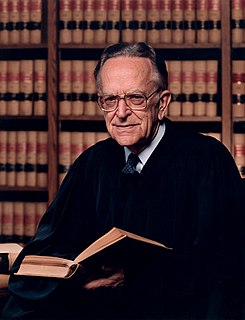A Quote by John Roberts
When I worked in the Department of Justice, in the office of the solicitor general, it was my job to argue cases for the United States before the Supreme court. I always found it very moving to stand before the justices and say, 'I speak for my country.'
Related Quotes
The part that the public sees is the arguments up at the podium and the briefs that we file. But a significant part of the job - in fact, I'd say I spend more of my time on this part of the job, which is deciding what the position of the United States will be in the cases that we're going to be participating in before the court.
Let's put it in perspective at the United States Supreme Court, which hears maybe 60 cases a year, most of the cases are resolved without much dispute. The 10 or 15 that are controversial we all know about, and we hear about. The federal courts hear just a tiny sliver of the cases that go to court in this country. Most of the cases are in the state courts. And most legal issues never go to court. So, the legal system is actually not in jeopardy. At the same time, access to law is in jeopardy.
In fact, Native American Rights Fund has a project called the Supreme Court Project. And quite frankly, it's focused on trying to keep cases out of the Supreme Court. This Supreme Court, Justice Roberts is actually, hard to believe, was probably worse than the Rehnquist Court. If you look at the few decisions that it's issued.
President Kennedy has named two Negroes to District Judgeships and appointed Thurgood Marshall to the United States Court of Appeals. When I came to the Department of Justice, there were only ten Negroes employed as lawyers; not a single Negro served as a United States Attorney - or ever had in the history of the country. That has been changed.
































